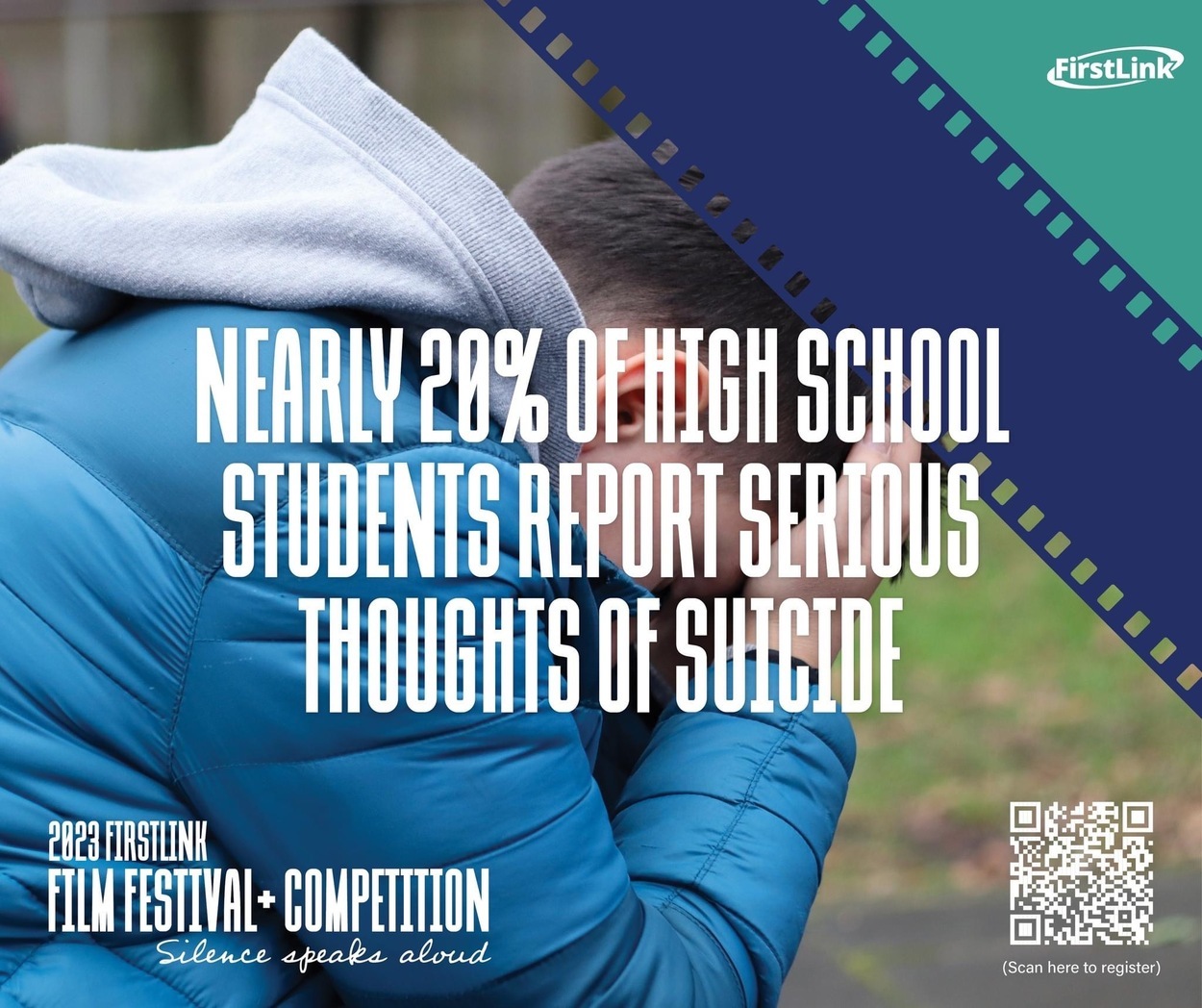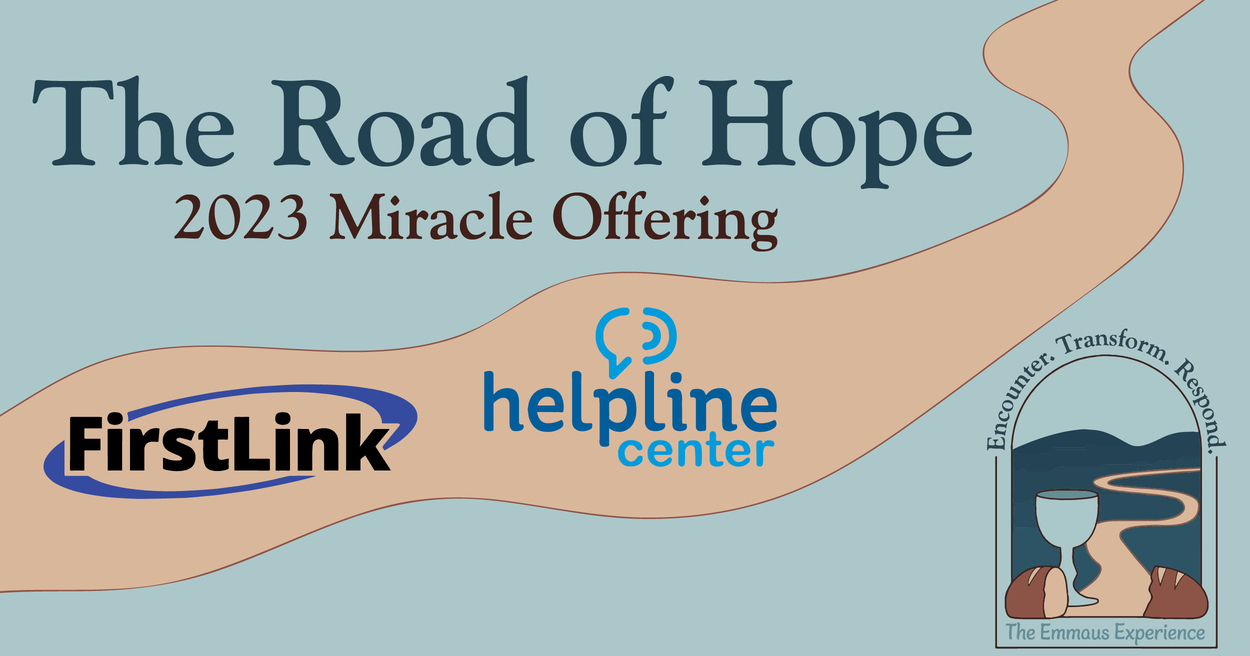
2023 Miracle Offering: Road to Hope—FirstLink brings hope to North Dakota

Photos and graphics from FirstLink.
"We've seen an increase in calls from our youth. What we heard on the phone from our youth is that they are ready to talk openly and directly about mental health, depression, and even about thoughts of suicide. But they were telling us on the phone that the grown-ups in their life aren't ready to talk about it yet," said Jennifer Illich, executive director of FirstLink in North Dakota, one of the designated recipients of the 2023 Miracle Offering: The Road of Hope.
FirstLink is a free, confidential service available to anyone 24 hours, seven days a week, 365 days a year, for listening and support, referrals to resources, help, and crisis intervention. FirstLink answers the 211 helpline and the 988 suicide and crisis lifeline and communicates via text. FirstLink provides these services across the entire state of North Dakota and parts of Minnesota. FirstLink began operating in 1970. This year marks 53 years of service to North Dakota.
"We started as a volunteer group of mostly moms and a few dads in 1970. It was a time when both parents were going to work. So, we had latchkey kids," said FirstLink's executive director Jennifer Illich. "Kids that were home after school alone until their parents got home. This group wanted to ensure the youth felt supported and had a phone line to call.
What started as a volunteer group to support youth after school grew. FirstLink began managing the 211 helpline for North Dakota. In 2010, the 988 suicide and crisis phone line was added to the service area.
FirstLink has expanded into community education on suicide prevention and mental health. Illich states, "We've been doing a lot of education this last year. For example, we have trainers that do a training called safe talk. It's like a three-hour training on recognizing suicide warning signs and learning how to link people to help in the community. There is also an eight-hour training called Mental Health First Aid. It is broad-based on mental health behaviors, recognizing warning signs and what to do."
The non-profit agency has a diverse funding stream. The primary funding source is from our state partnerships. The State of North Dakota Health and Human Service Department provides grants and contracts with FirstLink for services. United Way organizations throughout North Dakota are another revenue source. In addition, fundraising and donations are essential funding streams.
"We write a lot of grants for things like technology and office equipment," said Jennifer. "One of the fundraisers is a community breakfast in Fargo. We have a speaker and serve breakfast. This year was the fifteenth year for the breakfast."
This is the second year for the FirstLink Film Festival. The organization partnered with a Fargo area media company for a youth film festival. "We invited youth from high school and college age to develop and share videos on behavioral health. We got some really great work through their videos," said Illich.
Clergy and faith communities are a huge life connection for many people, states Illlich. "We often hear it on the phone when somebody is feeling sad or having depression in their life. They talk about the good feelings that they had with their faith community. It seems like a lot of times; there may be a disconnect when they stop attending church services. I think the best thing the churches can do is make people like new members or new people who come into the church feel welcome."
Mental health services for North Dakota are divided into regions centered around the eight largest communities of behavioral health centers. The centers are accessible Monday through Friday as needed.
"Crisis just doesn't happen during regular business hours. So, we also have a mobile crisis throughout North Dakota. When someone calls 988, we screen, triage, and deploy a mobile crisis unit right out to people. The state of North Dakota recognizes that, and they're trying to get more funding to increase the reach of the mobile crisis workers," describes Jennifer.
COVID encouraged the deployment and use of telehealth. Illich said, "There's a lot of places that do telehealth now. It's not face-to-face with a counselor, but, you know, you can do it through Zoom or Teams."

In January 2023, FirstLink added test and chat to their 211 and 988 services. The volume of texts and chats keeps increasing each month. "Most teens have phones, a tablet, or a laptop. Text and chat opened the door for different communications. For example, if a student is experiencing anxiety at school, they can text us in the hall. It is quiet, and nobody knows who they are texting on their phone," said Illich. "Sometimes, the first step is texting when they are at home. If they are worried their parents will hear them through the door, they can text."
More people are reaching out for help, but there is still a stigma around mental health. "Mental and behavioral health, I think talking about it openly and directly, is the best thing we can do," said Jennifer.
You can contribute to the Helpline Center by participating in the 2023 Miracle Offering: Road to Hope.
Resources for the 2023 Miracle Offering:
Download a copy of this letter
Bulletin insert: Microsoft Word | PDF
Presentation for churches: Power Point slides | JPEGS
Videos
Graphics for social media, websites, and newsletters